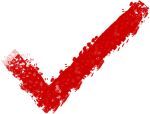QuickCheck: Should you avoid rinsing your mouth after brushing your teeth?
WHEN a character finishes brushing their teeth in the movies or on TV, they often just spit out the excess without rinsing their mouths with water and gargling. However, most of us adopt the rinse-gargle-spit routine after brushing our teeth – after all, we were taught to do so since young, often by those older and wiser.
Since Hollywood-made entertainment is make-believe, it is easy to dismiss this non-rinsing behaviour as an on-screen quirk.
However, is there truth behind this prevalent trope? Should you avoid mouth-rinsing after brushing your teeth?

Don't just take Hollywood's (or our) word for it. According to the UK National Health Institute, it is best to just spit out the excess toothpaste after brushing and not rinse immediately.
The Health Ministry's MyHealth portal makes no mention of rinsing and only advises us to "spit out after brushing".
And the wisdom for not rinsing out your mouth after brushing? Fluoride!
The fluoride in toothpaste, which helps prevent tooth decay, will remain in the mouth and continue to be effective if it is not rinsed out.
Don't use mouthwash after brushing your teeth either. The fluoride in toothpaste is concentrated and any mouthwash – even if it contains fluoride – will dilute it.
Ironically, fluoride is also why we were taught to rinse after brushing when we were kids. It can lead to dental fluorosis (brown spots on teeth) in children, which is why children's toothpaste usually does not have fluoride but if it does, the amount used is small.
The habit of rinsing your mouth after brushing is a difficult one to break, but if you want to take on the challenge, here are some tips:
Use only a pea-sized dot of toothpaste when brushing (per the instructions on the package), not a dollop (like what we often see in toothpaste advertisements).
Don't eat or drink 30 minutes after toothbrushing or after using mouthwash.
Of course, if you floss after brushing, you should rinse away any dislodged plaque. But it would be even better to floss before brushing your teeth!
References:
https://www.nhs.uk/live-well/healthy-teeth-and-gums/how-to-keep-your-teeth-clean
http://www.myhealth.gov.my/en/tooth-brushing
WHEN a character finishes brushing their teeth in the movies or on TV, they often just spit out the excess without rinsing their mouths with water and gargling. However, most of us adopt the rinse-gargle-spit routine after brushing our teeth – after all, we were taught to do so since young, often by those older and wiser.
Since Hollywood-made entertainment is make-believe, it is easy to dismiss this non-rinsing behaviour as an on-screen quirk.
However, is there truth behind this prevalent trope? Should you avoid mouth-rinsing after brushing your teeth?

Don't just take Hollywood's (or our) word for it. According to the UK National Health Institute, it is best to just spit out the excess toothpaste after brushing and not rinse immediately.
The Health Ministry's MyHealth portal makes no mention of rinsing and only advises us to "spit out after brushing".
And the wisdom for not rinsing out your mouth after brushing? Fluoride!
The fluoride in toothpaste, which helps prevent tooth decay, will remain in the mouth and continue to be effective if it is not rinsed out.
Don't use mouthwash after brushing your teeth either. The fluoride in toothpaste is concentrated and any mouthwash – even if it contains fluoride – will dilute it.
Ironically, fluoride is also why we were taught to rinse after brushing when we were kids. It can lead to dental fluorosis (brown spots on teeth) in children, which is why children's toothpaste usually does not have fluoride but if it does, the amount used is small.
The habit of rinsing your mouth after brushing is a difficult one to break, but if you want to take on the challenge, here are some tips:
Use only a pea-sized dot of toothpaste when brushing (per the instructions on the package), not a dollop (like what we often see in toothpaste advertisements).
Don't eat or drink 30 minutes after toothbrushing or after using mouthwash.
Of course, if you floss after brushing, you should rinse away any dislodged plaque. But it would be even better to floss before brushing your teeth!
References:
https://www.nhs.uk/live-well/healthy-teeth-and-gums/how-to-keep-your-teeth-clean
http://www.myhealth.gov.my/en/tooth-brushing
